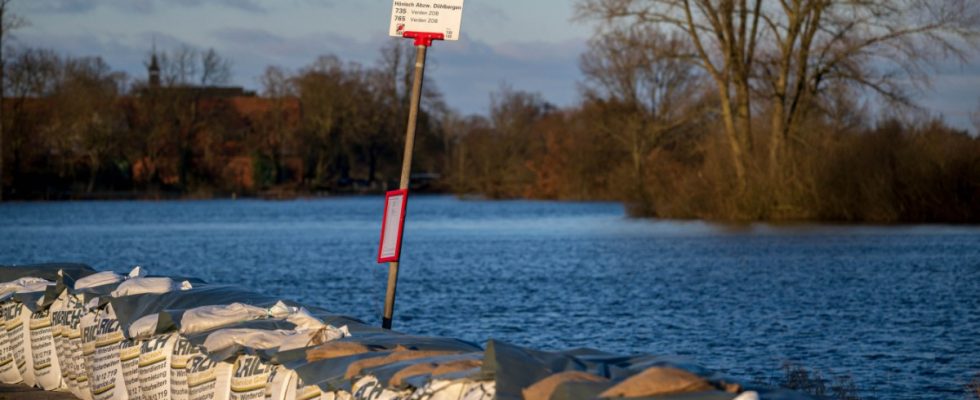Flooding is still ongoing in many parts of Germany. The floods have not yet been able to drain away in many areas, even if the change in the weather is helping. The risk analysis company Meyerthole Siems Kohlruss (MSK) in Cologne still estimates that the amount of insured damage will be less than one billion euros if the dikes continue to hold. Compared to the flood disasters of 2002 and 2013, that would still be a relatively small amount. “In 2013 the damage, adjusted for inflation, was three billion euros, in 2002 it was even six billion euros,” says MSK boss Onnen Siems.
One reason for this: In Lower Saxony, which is particularly hard hit by floods, only 32 percent of residential buildings are insured against natural damage such as floods, according to the General Association of the German Insurance Industry (GDV). These can be insured through an add-on to your home or household contents insurance. Nationwide, 54 percent of residential properties are insured against natural hazards – significantly more than in Lower Saxony.
The regional insurer Public Insurance Braunschweig, which was the first provider to provide an estimate of its flood damage, assumes a burden of 1.65 million euros. In addition, there would be 500,000 euros in damage from the storm Zoltan, which preceded the flood. The insurance company, whose business area includes the cities of Braunschweig, Helmstedt, Wolfenbüttel and Salzgitter, the Holzminden district as well as parts of Wolfsburg and the Harz, has so far received around 900 reports of damage. The flood damage to the Braunschweig public area will probably not be of the magnitude of the heavy rain during the depression Lambert reach that devastated Braunschweig in June 2023. At that time there were 5,200 damage reports totaling around 22 million euros, of which more than 17 million euros related to natural hazards.
Debate about compulsory insurance flares up again
But even insurance against natural damage does not help with every damage that occurs in connection with flooding. “If the water is ‘only’ in the basement due to the rise in groundwater – i.e. not flooding the property – then the damage is generally not covered by natural hazard insurance,” explains MSK boss Siems.
The recent floods have nevertheless reignited the discussion about compulsory insurance against natural hazards in Germany. Politicians are divided as to whether homeowners should be required to take out a natural hazard insurance policy; the Prime Minister of Lower Saxony, Stephan Weil (SPD), for example, is in favor of it. Federal Interior Minister Marco Buschmann (FDP), however, recently rejected compulsory insurance again. He warned that premiums could rise and housing could become significantly more expensive. “The federal government has therefore recommended that we refrain from using the instrument,” he said.
The insurer association GDV is also against compulsory insurance. Managing director Jörg Asmussen advocates a so-called opt-out solution, in which homeowners are automatically covered against natural hazards when taking out building insurance, but can opt out of the additional cover if they wish. Insurers are also calling for more prevention and better adaptation to the consequences of climate change. A rethink when planning, building and renovating as well as stopping construction in flood areas should help minimize future damage. This is an important topic for the future: The Intergovernmental Panel on Climate Change expects that extreme rain events will occur more frequently and be more intense as global warming increases.

